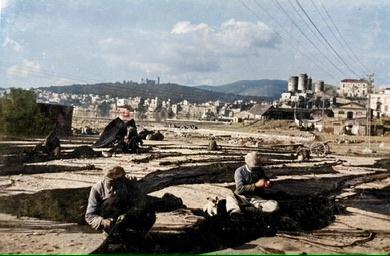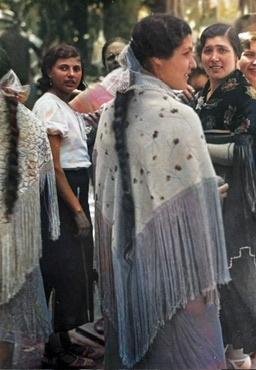How did mercenary work impact the social and economic status of Mallorcan slingers in ancient society?
Similar Topics
mallorcan slingers
mercenary work impact
social status mallorcans
economic status ancient
sling warfare skill
mediterranean mercenaries
social mobility warriors
ancient military campaigns
Mercenary work had a significant impact on the social and economic status of Mallorcan slingers in ancient society. Known for their exceptional skill with the sling, these archipelago warriors served various powers around the Mediterranean, including Carthaginians, Romans, and Greeks. Their reputation as formidable long-range combatants made them highly sought after in military campaigns, which allowed many Mallorcan slingers to earn steady wages and accrue wealth beyond what was typically available through agricultural or local trades on their island. This financial gain improved their standing within their own community, granting them an economic advantage and often a greater degree of social respect.
The role of mercenary slingers also elevated their visibility on a larger geopolitical stage. While traditionally considered lower-ranking soldiers, through their mercenary service, Mallorcan slingers were able to leverage their specialized skills into valuable assets that granted them a form of social mobility. Participation in foreign armies and campaigns exposed them to broader cultural and economic exchanges as well, which occasionally resulted in increased influence and opportunities beyond their insular origins. Their expertise in sling warfare was sometimes recognized officially, offering them protection and privileges not usually extended to ordinary foot soldiers.
However, the mercenary lifestyle was not without its risks and limitations. While it provided economic benefits, it tied the slingers to the instability of warfare and dependence on external patrons. This precarious position sometimes hindered their long-term social integration into the dominant cultures they served. Nonetheless, the increased income and prestige they enjoyed from their combat role generally outweighed these downsides, marking a notable shift in their traditional societal role. Overall, mercenary work served as a catalyst that enhanced the economic standing and social recognition of Mallorcan slingers during antiquity, distinguishing them not only as skilled warriors but as influential agents within the ancient Mediterranean world.
The role of mercenary slingers also elevated their visibility on a larger geopolitical stage. While traditionally considered lower-ranking soldiers, through their mercenary service, Mallorcan slingers were able to leverage their specialized skills into valuable assets that granted them a form of social mobility. Participation in foreign armies and campaigns exposed them to broader cultural and economic exchanges as well, which occasionally resulted in increased influence and opportunities beyond their insular origins. Their expertise in sling warfare was sometimes recognized officially, offering them protection and privileges not usually extended to ordinary foot soldiers.
However, the mercenary lifestyle was not without its risks and limitations. While it provided economic benefits, it tied the slingers to the instability of warfare and dependence on external patrons. This precarious position sometimes hindered their long-term social integration into the dominant cultures they served. Nonetheless, the increased income and prestige they enjoyed from their combat role generally outweighed these downsides, marking a notable shift in their traditional societal role. Overall, mercenary work served as a catalyst that enhanced the economic standing and social recognition of Mallorcan slingers during antiquity, distinguishing them not only as skilled warriors but as influential agents within the ancient Mediterranean world.
🧩 Related Questions
Related Question
What are some typical herbs grown in Mallorca, and how are they used in cooking?
Related Question
What historical events influenced the design and religious symbolism of the Cathedral of Palma?
Related Question
How does the Banco de Sóller exemplify the town’s economic history in the 19th century?

